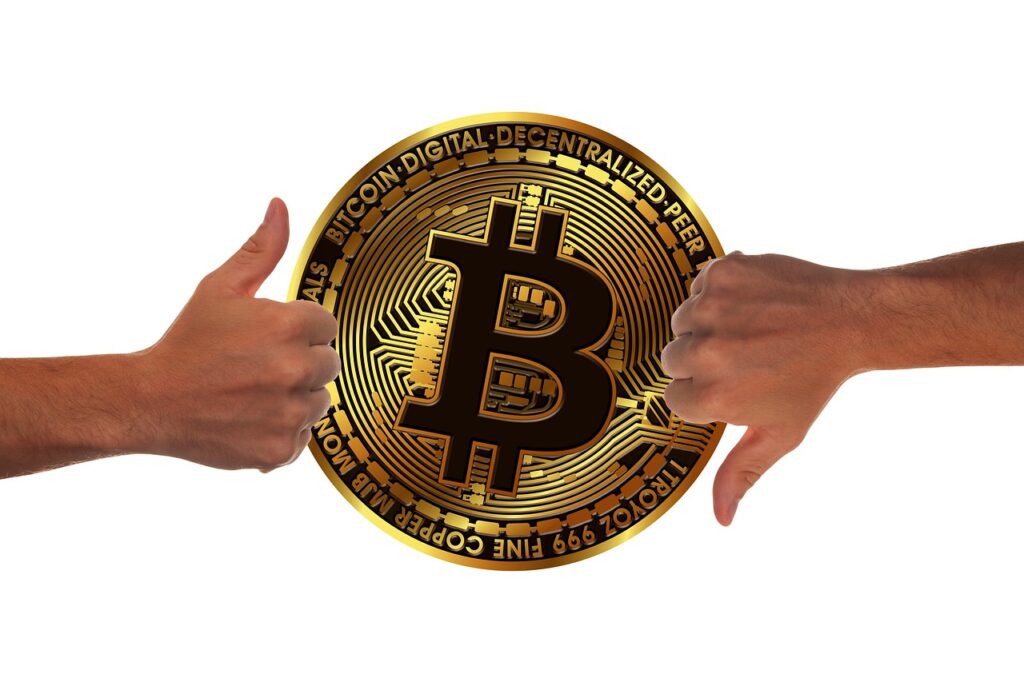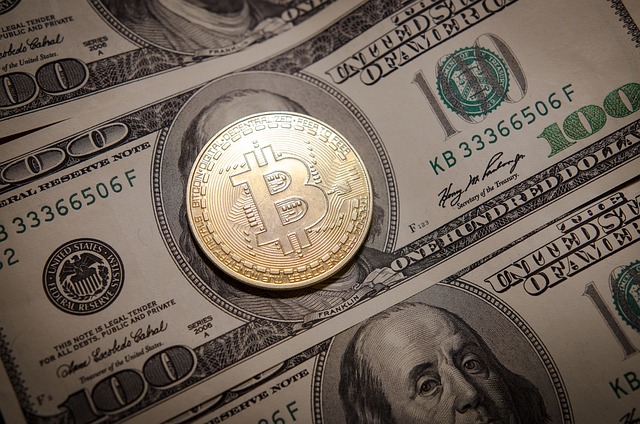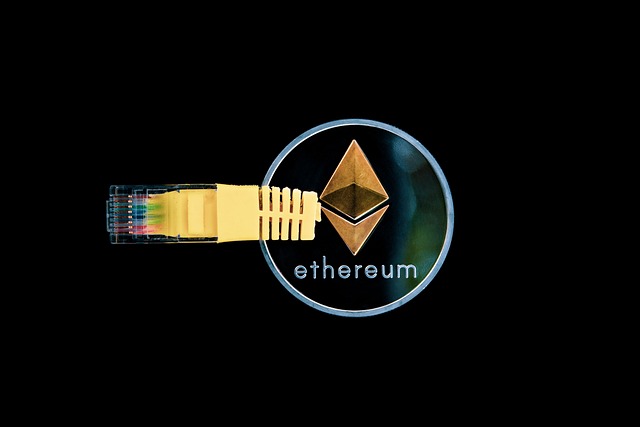DeFi Technology Explained: A Comprehensive Overview
DeFi Technology Explained: A Comprehensive Overview

Decentralized Finance: What is it?
The concept of Decentralized Finance, or DeFi for short, has been gaining traction in recent years. Simply put, DeFi refers to a system where traditional financial intermediaries, such as banks and financial institutions, are replaced by decentralized applications (DApps) built on blockchain technology. These DApps aim to provide individuals with greater control over their financial activities, bypassing the need for intermediaries and enabling peer-to-peer transactions in a trustless manner.
One of the key aspects of DeFi is the use of smart contracts, which are self-executing agreements that automatically execute transactions when predefined conditions are met. Smart contracts serve as the backbone of DeFi by ensuring the accuracy, transparency, and security of financial transactions. This allows individuals to engage in various financial activities, such as lending, borrowing, and trading, without relying on centralized entities. The use of smart contracts also eliminates the need for third-party intermediaries, reducing costs and increasing efficiency in financial transactions.
The Rise of DeFi: A Brief History
Decentralized Finance (DeFi) has been gaining significant attention in the financial world in recent years. The rise of DeFi can be attributed to the increasing popularity of blockchain technology and its potential to revolutionize traditional financial systems. With its open and transparent nature, DeFi has the potential to democratize access to financial services, eliminate intermediaries, and provide greater financial inclusion for individuals around the world.
One of the earliest manifestations of DeFi can be traced back to 2015 with the launch of Ethereum, a blockchain platform that introduced the concept of smart contracts. Smart contracts are self-executing agreements that are coded with predefined conditions, ensuring trust and eliminating the need for intermediaries. This breakthrough technology paved the way for the development of various DeFi applications, such as decentralized exchanges and lending platforms, which operate without the need for a central authority.
Understanding Blockchain Technology
Blockchain technology is at the heart of decentralized finance (DeFi) and understanding its fundamentals is crucial in navigating the world of digital finance. Put simply, a blockchain is a digital ledger that records transactions in a transparent and immutable manner. Unlike traditional financial systems, where transactions are processed and verified by a central authority, blockchain relies on a decentralized network of computers, known as nodes, for validation.
One of the key features of blockchain is its ability to ensure security and trust in a decentralized environment. Each transaction is grouped into a block, which is then added to the existing chain. Once a block is added, it cannot be altered or deleted, making the blockchain resistant to tampering. This immutability, combined with the decentralized nature of the network, creates a system that is transparent and resistant to fraud. Additionally, blockchain technology enables peer-to-peer transactions, eliminating the need for intermediaries and reducing costs for users.
Smart Contracts: The Backbone of DeFi
Smart contracts are the foundation upon which decentralized finance (DeFi) is built. These self-executing contracts are encoded with predefined rules and conditions, eliminating the need for intermediaries and allowing for a trustless system. By leveraging blockchain technology, smart contracts ensure transparency, immutability, and security in all DeFi transactions.
One of the key advantages of smart contracts is their ability to automate processes and enforce agreements without any human intervention. This means that once the terms of the contract are met, the contract automatically executes the agreed-upon actions. For example, in DeFi lending platforms, smart contracts handle the entire process from loan origination to repayment, ensuring that the borrower receives funds and the lender receives principal and interest according to the agreed schedule. This automation not only eliminates the need for intermediaries but also reduces the risk of human error or manipulation.
• Smart contracts are the foundation of decentralized finance (DeFi).
• They eliminate the need for intermediaries and create a trustless system.
• Smart contracts ensure transparency, immutability, and security in all DeFi transactions.
• They can automate processes and enforce agreements without human intervention.
• For example, in DeFi lending platforms, smart contracts handle the entire loan process.
• This automation reduces the risk of human error or manipulation.
Exploring Decentralized Exchanges
Decentralized exchanges (DEXs) are a crucial aspect of the booming decentralized finance (DeFi) space. Unlike their centralized counterparts, DEXs operate without the need for intermediaries or a centralized authority. This means that users can trade cryptocurrencies and other digital assets directly with one another, cutting out the middleman. DEXs are built on blockchain technology, which ensures transparency, immutability, and security in every transaction.
One of the key benefits of DEXs is their ability to provide users with greater control over their funds.

Lending and Borrowing in the DeFi Space
With the advent of decentralized finance (DeFi), the financial landscape has witnessed an exciting evolution. Lending and borrowing in the DeFi space unlock new opportunities for individuals to access capital and earn interest on their digital assets. Unlike traditional banking systems, where intermediaries play a significant role, DeFi platforms operate on open-source protocols that allow anyone with an internet connection to participate.
Lending in the DeFi space refers to the act of lending your digital assets to others in exchange for interest payments. Through smart contracts, borrowers can leverage their own assets as collateral and borrow funds from lenders without the need for a middleman. This creates a peer-to-peer lending system where trust is established and maintained through code and algorithms. Borrowers benefit from quick access to funds, while lenders earn interest on their idle assets.

Stablecoins: The Key to Stability in DeFi
The volatile nature of cryptocurrencies has long been a concern for users and investors. The value of digital assets can fluctuate wildly within a matter of minutes, making them unsuitable for practical everyday use. This is where stablecoins come into the picture as a game-changer in the world of decentralized finance (DeFi).
Stablecoins are cryptocurrencies that are designed to have a stable value by pegging them to an underlying asset, such as a fiat currency like the US dollar or a basket of commodities. By offering this stability, stablecoins provide a crucial bridge between traditional finance and the decentralized world. They enable DeFi platforms to function more effectively by providing users with a reliable and familiar unit of account to transact with. Additionally, stablecoins introduce stability into the decentralized ecosystem, helping to mitigate the unpredictable price movements that have often deterred mainstream adoption of cryptocurrencies.
The Role of Oracles in DeFi
Oracles play a vital role in the world of decentralized finance (DeFi), acting as a bridge between blockchain platforms and the real world. In simple terms, oracles are data providers that feed real-time, external information into smart contracts. They serve as valuable sources of verified and trusted data, making them essential for various DeFi applications such as decentralized exchanges, lending platforms, and insurance protocols.
By connecting blockchain networks with information outside of their ecosystem, oracles enable DeFi protocols to access real-time data on asset prices, weather conditions, stock prices, and much more. This data is crucial for the proper functioning of smart contracts, as they often require external information to execute actions or trigger certain conditions. Oracles ensure the accuracy and reliability of this data, protecting the integrity of DeFi applications and preventing potential vulnerabilities that could arise from manipulating or inaccurate information.
Yield Farming: Maximizing Returns in DeFi
Yield farming has become one of the most popular ways to maximize returns in the exciting world of decentralized finance (DeFi). It involves staking or lending crypto assets on various platforms in order to earn additional tokens as rewards. The concept is simple: by participating in different liquidity pools, users can earn interest or other governance tokens that can boost their overall returns.
The mechanism behind yield farming is what makes it so intriguing. By providing liquidity to projects, individuals are essentially helping to bootstrap new protocols or platforms, which in turn rewards them with tokens. These tokens can then be sold or held for further appreciation. While yield farming can be highly lucrative, it’s not without risks. The decentralized nature of DeFi means that smart contract vulnerabilities and potential security breaches are always a concern. Additionally, the fast-paced nature of the space makes it necessary to constantly stay updated and adapt to new projects and platforms to maximize returns effectively.
The Potential Risks and Challenges in DeFi
While decentralized finance (DeFi) offers numerous opportunities and benefits, it also comes with its fair share of risks and challenges. One of the major concerns in the DeFi space is the prevalence of smart contract vulnerabilities. Since smart contracts are the building blocks of DeFi applications, any flaws or loopholes in their code can potentially be exploited by malicious actors, leading to financial losses for users.
In addition to smart contract vulnerabilities, another challenge in DeFi is the lack of regulatory oversight and consumer protection. Unlike traditional finance, which operates under strict regulations and oversight from governing bodies, DeFi operates in a relatively unregulated space.

What is decentralized finance (DeFi)?
DeFi stands for decentralized finance, which refers to the use of blockchain technology and smart contracts to create financial services and applications that do not rely on traditional intermediaries like banks.
How did DeFi rise to prominence?
DeFi has gained popularity in recent years due to its potential for providing open, transparent, and accessible financial services to a global audience. It has also been fueled by the increased adoption of blockchain technology and cryptocurrencies.
What is blockchain technology?
Blockchain technology is a decentralized and distributed ledger that records transactions across multiple computers. It ensures transparency, immutability, and security in recording and verifying transactions.
What role do smart contracts play in DeFi?
Smart contracts are self-executing contracts with predefined rules coded into them. They automatically execute transactions when certain conditions are met, making them the backbone of many DeFi applications.
What are decentralized exchanges?
Decentralized exchanges (DEXs) are platforms that allow users to trade cryptocurrencies directly with each other, without relying on intermediaries. They enable peer-to-peer trading and provide greater control over users’ assets.
How does lending and borrowing work in the DeFi space?
In DeFi, lending and borrowing platforms use smart contracts to facilitate peer-to-peer lending without the need for intermediaries. Users can lend their digital assets and earn interest, while borrowers can access funds by providing collateral.
What are stablecoins and why are they important in DeFi?
Stablecoins are cryptocurrencies designed to minimize price volatility by being pegged to a stable asset, such as a fiat currency. They provide stability and act as a medium of exchange within the DeFi ecosystem.
What is the role of oracles in DeFi?
Oracles are trusted sources of off-chain data that provide information to smart contracts. They are crucial in DeFi as they enable the integration of real-world data into blockchain applications, facilitating various financial functions.
What is yield farming in DeFi?
Yield farming in DeFi involves users leveraging their cryptocurrency holdings to earn additional tokens or rewards. It typically involves providing liquidity to decentralized exchanges or lending platforms to earn interest or governance tokens.
What are some potential risks and challenges in DeFi?
Some risks and challenges in DeFi include smart contract vulnerabilities, regulatory uncertainty, scalability issues, price volatility, potential for hacks or exploits, and the need for user education and security awareness.
Todays Featured Product:
Buy, exchange and grow your crypto securely with a Ledger hardware wallet, combined with the Ledger Live app. It’s never been easier to keep your crypto safe and accessible. Buy direct from Ledger.com and get todays Special Offers Here.




